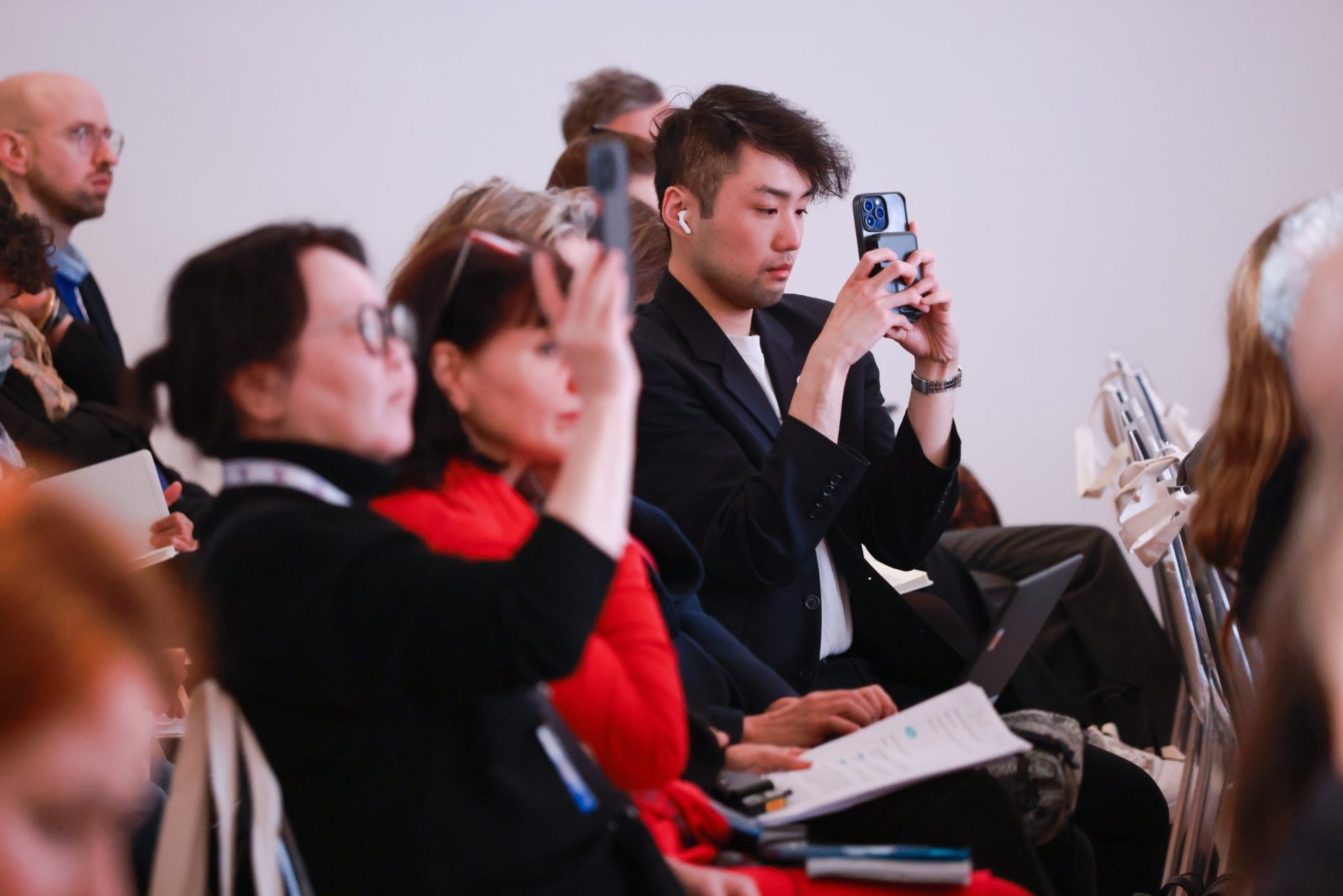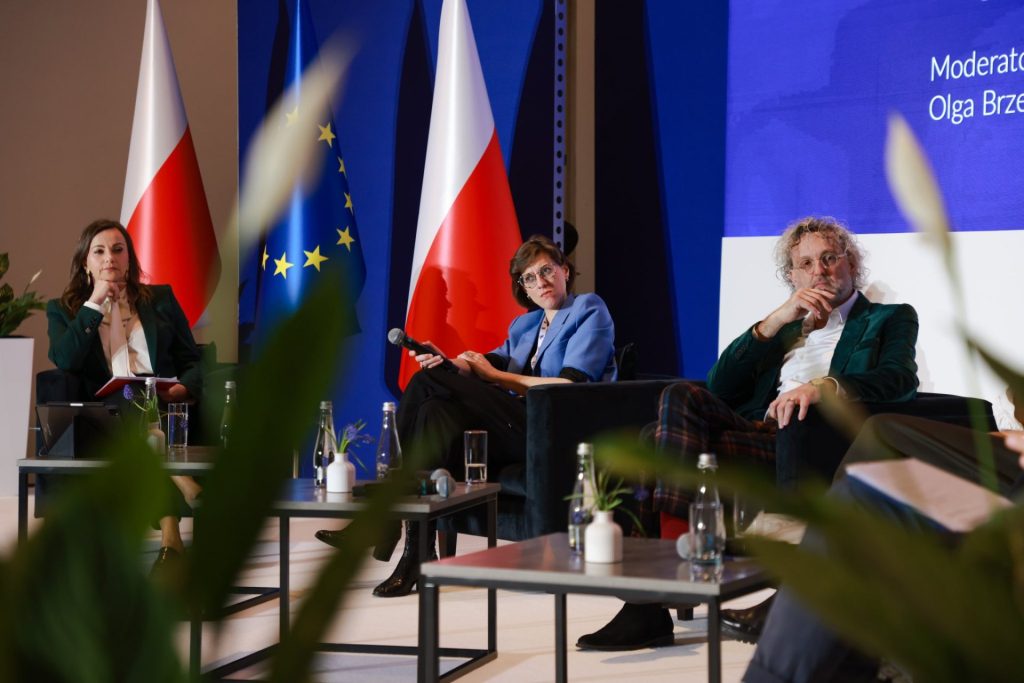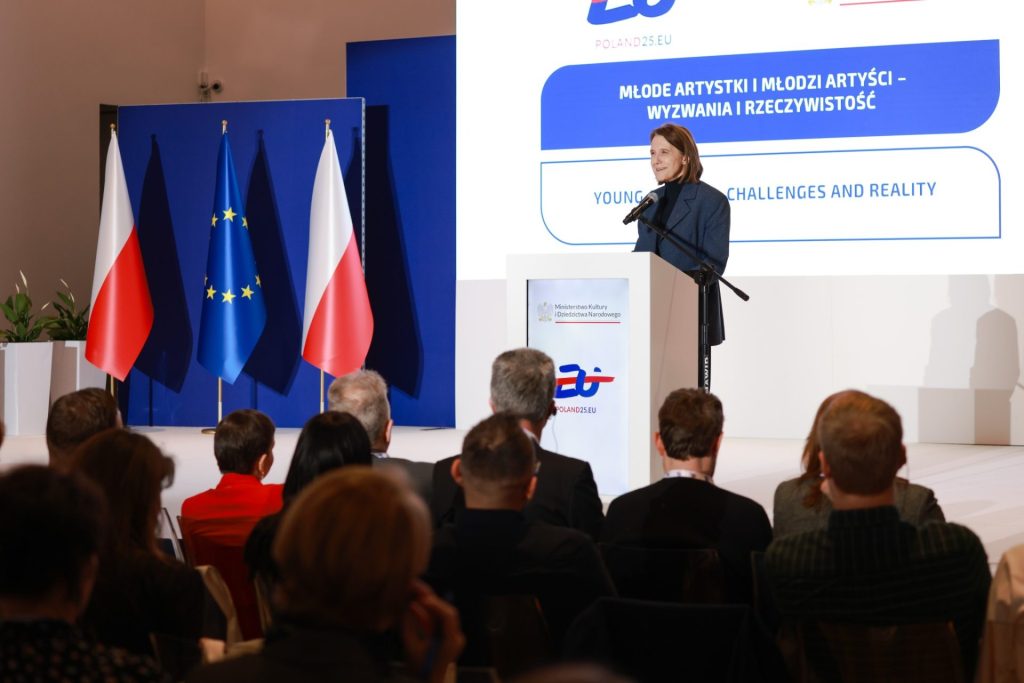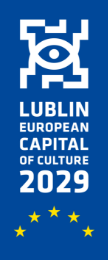
Lublin 2029 at the “Young artists – challenges and reality” conference
Can culture be an answer to the challenges that security-focused Europe faces? From April 9 to 10, 2025, the National Gallery of Art in Zachęta hosted an international conference on the situation of young artists in the labour market. The event, organized as part of the Polish presidency of the Council of the EU, convened creative and managerial individuals, and representatives of cultural institutions from across Europe. Discussed topics included artists’ mobility, access to education, planning a career path, equality and sustainability in the cultural sector, and the future of creative professions in the age of AI.

Photo by Danuta Matloch / Ministry of Culture and National Heritage
Agnieszka Polska, whose works have been exhibited in prestigious galleries, such as MoMA and Tate Modern gave the inaugural speech. The visual artist and lecturer at foreign art universities talked about establishing an international career. In her opening speech, Agnieszka Polska posed the question of whether this Period of Unrest is the right time to redefine the role of the artist in the modern world. She stressed that the imaginative resources at the disposal of the creative community do make it possible to fully grasp growing social and political problems from non-obvious, often unpredictable perspectives.
The second speech was delivered by Philippe Kern, advisor to the European Commission on cultural policy, who presented European strategies for supporting the artists. The presentation was followed by a series of six panel discussions, during which experts and artists debated key aspects of functioning in artistic and market reality. They debated, among other things, the need for mentoring programs, artist residencies and cultural incubators, as well as the need to network creative communities. They also discussed the need for equal opportunities in access to art education, regardless of social background or place of residence, and the role of cultural education, starting even at the school stage, as a key foundation for future artistic careers.

Photo by Danuta Matloch / Ministry of Culture and National Heritage
The Lublin 2029 team’s participation in the event was a perfect opportunity to develop a network of cooperation with European partners, and to reflect more deeply on the role young artists play in the future of culture. The conference truly aligned with the values and goals of the European Capital of Culture programme, which focuses on agency, diversity, and long-term support for artists of the new generation.
Translated by Aleksandra Górecka
Proofread by Zofia Świerszcz
